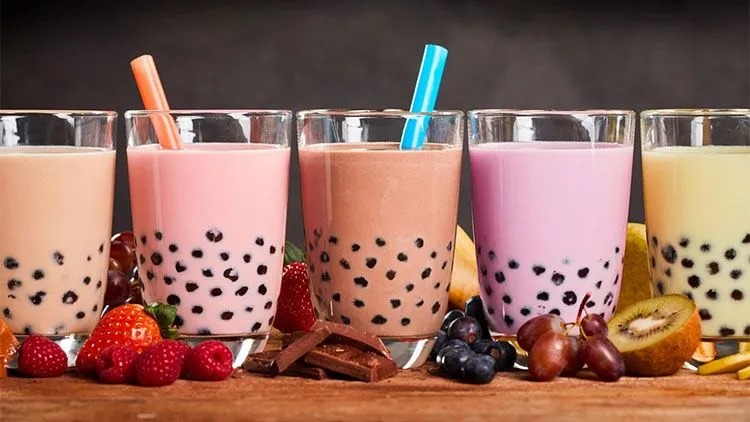Embracing Vegan Lifestyle: Food Choices, Laundry, and Cleaning
In recent years, the vegan lifestyle has gained remarkable momentum as individuals become more aware of their choices’ impact on the environment, animal welfare, and personal health.
While “vegan” is often associated with food choices, it encompasses much more than what we consume. Veganism is a lifestyle that seeks to exclude the use of animals for any purpose, including food, clothing, cosmetics, and entertainment. It is rooted in the belief that animals deserve ethical consideration and should not be exploited for human gain. Therefore, being vegan extends to various aspects of our lives, including our laundry practices and cleaning routines.
By delving into these areas, we can comprehensively understand how to incorporate vegan principles into our daily lives.
Food Choices
Transitioning to a vegan diet can initially seem overwhelming, but it becomes an enjoyable and sustainable lifestyle choice with the right approach. For beginners, gradually incorporating vegan meals into your diet is key. Start by substituting one or two animal-based dishes per week with plant-based alternatives. This approach allows you to explore new flavors and gradually build a repertoire of delicious vegan recipes.
One common concern about a vegan diet is obtaining essential nutrients. However, proper planning makes it possible to meet your nutritional needs. A well-balanced vegan diet should include protein sources like legumes, tofu, tempeh, seitan, whole grains, nuts, seeds, and various fruits and vegetables.
Plant-based sources of iron include dark leafy greens, lentils, and fortified cereals, while calcium can be obtained from sources such as fortified plant-based milk, tofu, and certain leafy greens.
Exploring Plant-Based Alternatives
One of the exciting aspects of embracing a vegan lifestyle is discovering innovative substitutes for meat, dairy, and eggs. Plant-based alternatives like tofu, tempeh, and seitan provide excellent protein sources, while soy or nut-based milk, cheese, and yogurt can replace their dairy counterparts. Additionally, various egg replacers are available for baking and cooking, such as applesauce, mashed bananas, flaxseeds, or commercial egg substitutes.
Plant-based Nutrition and Health
A vegan diet has been linked to numerous health benefits. Studies have shown that it can reduce the risk of chronic diseases, including heart disease, type 2 diabetes, and certain types of cancer. Additionally, a plant-based lifestyle can help manage weight and increase energy levels due to the high fiber content and reduced intake of saturated fats in animal products.
Meal Planning and Diversifying Your Plate
Meal planning plays a vital role in ensuring a nutritionally balanced vegan diet. It allows you to incorporate various plant-based foods, ensuring you receive all the necessary nutrients. Diversify your plate by including various fruits, vegetables, whole grains, legumes, and plant-based protein sources. Experiment with different spices and herbs to enhance the flavors and make your meals more enjoyable.
Vegan-Friendly Sources of Essential Nutrients
Plant-based sources can provide all the essential nutrients for a healthy vegan lifestyle. Consider incorporating lentils, chickpeas, quinoa, and hemp seeds into your diet for protein. Iron-rich plant foods include spinach, lentils, fortified cereals, and tofu. Omega-3 fatty acids, vital for brain health, can be obtained from flaxseeds, chia seeds, and walnuts. It is essential to consult with a healthcare professional or registered dietitian for personalized advice on meeting your specific nutritional needs.
Veganism and Sustainability
Adopting a vegan lifestyle can have a profound positive impact on the environment. Animal agriculture is a significant contributor to greenhouse gas emissions, deforestation, and water pollution. Reducing or eliminating animal products from our diets can help mitigate climate change and preserve natural resources.
Beyond dietary choices, vegan extends to various aspects of our lives, including laundry practices and cleaning. In terms of laundry, being vegan involves using laundry detergents and products that are free from animal-derived ingredients and have not been tested on animals. It also encompasses reducing environmental impact by conserving energy and water during laundry and opting for sustainable fabrics in our clothing choices.
Regarding cleaning, veganism extends to cruelty-free cleaning products, meaning they are not tested on animals and do not contain animal-derived ingredients. It also involves choosing eco-friendly cleaning alternatives, such as homemade cleaners with natural ingredients, to minimize the use of harsh chemicals that can harm the environment and animal habitats.
By embracing vegan principles in laundry and cleaning practices, we align our values with our actions, promoting a more compassionate and sustainable way of living. It reinforces the belief that our choices have consequences beyond our immediate surroundings and that we can contribute to a more ethical and environmentally-friendly world by being mindful of our products. If you depend on wash and fold laundry services, go for those who follow sustainable practices.
Embrace Vegan Lifestyle
Incorporating vegan principles into our daily lives extends beyond dietary choices. By embracing vegan practices in laundry and cleaning routines, we can align our values with our everyday actions, promoting a more sustainable and compassionate way of living. Making informed decisions about food choices, laundry practices, and cleaning routines allows us to contribute to a healthier planet and a more ethical lifestyle. Embracing a vegan lifestyle, we improve our well-being and actively participate in creating a more sustainable future for all.




